Under the Munchausen Syndrome a mental disorder is understood. The people affected invent diseases and complaints.
What is Munchausen Syndrome?

© pathdoc - stock.adobe.com
The so-called Munchausen Syndrome is one of the artificial disorders. It's also called Luminary killer syndrome known. A typical characteristic of mental disorders is the deliberate invention of illnesses and physical complaints. These are presented dramatically but plausibly by those affected.
This is considered a special form Munchausen deputy syndrome. The damage is not done to the patient himself, but to a representative. These are usually close relatives such as your own children. The term Munchausen Syndrome was first used in 1951 by the English psychiatrist Richard Asher (1912-1969). The famous lying baron Münchhausen served as the namesake, who repeatedly cast a spell over his audience with his lies.
causes
Doctors attribute the development of Munchausen Syndrome to severe traumatic experiences in the childhood of the person concerned. Some patients have been the victims of physical violence or sexual abuse. But neglect can also play an important role. Many of those affected suffer from a lack of attention or feel that they are not being given enough attention.
A typical feature of Munchausen syndrome is the frequent stay of patients in doctors' offices or hospitals. While normal patients do not like to visit these facilities, people with Munchausen Syndrome do go there with pleasure. In this way, they intend to make up for the donation that has not yet been given to them. They are not interested in financial benefits or sick leave.
Rather, through the numerous examinations, they experience a form of affection that they enjoy. Elderly people who lack family or social contacts are particularly affected by Munchausen Syndrome. Instead, they perceive the doctor or nursing staff to be helpful. At the same time, those affected get so deep into their medical histories that they even end up in the hospital.
Symptoms, ailments & signs
The main symptom of Munchausen Syndrome is making up lies about one's own health. Patients visit a doctor and describe symptoms that they do not or hardly suffer from. It is not uncommon for truth and untruth to be mixed up. In addition, social contacts are often broken off. Doctors and clinics are also repeatedly exchanged. It is not uncommon for this to be followed by excessive travel.
The patient has the constant desire to see a doctor and take on the role of the sick. In some cases, patients even go so far as to harm themselves physically. This includes making abrasions or cuts, injecting infectious substances, and injecting insulin to induce hypoglycaemia. In addition, pain is simulated and surgical interventions are required that are not even necessary.
In Munchausen deputy syndrome, it is not the person affected who suffers this damage, but a deputy like a child. Most of the time, the practitioners are the mothers who falsify their children's measurement data, give them medication such as laxatives or mix sugar into a urine sample so that the doctor believes there is an illness.
In extreme cases, the child may even have bones broken, which is a serious form of child abuse. Problematically, some people who suffer from Munchausen deputy syndrome work in medical professions themselves, which makes it easier for them to fake illnesses.
Diagnosis & course of disease
Diagnosing Munchausen Syndrome is not easy. Since those affected are deceptively realizing their complaints, it is difficult to assume they were intended. The constant complaint of symptoms is an indication of the mental disorders. Often there are deviations and always new versions.
However, if the doctor cannot discover the basis for the symptoms presented, those affected usually change it quickly and start their game all over again. Another tip is to avoid meeting relatives or friends in a hospital. Often no reference persons are given at all.
In some cases, Munchausen Syndrome can have serious consequences for those affected. Among other things, there is a risk of unnecessary surgical interventions, which in turn cause damage to health. Self-injuries to one's own body can also result in considerable impairment. After all, if the dizziness is finally exposed, there is a risk of social problems. As a rule Munchausen syndrome takes a chronic course.
Complications
People with Munchausen Syndrome are difficult to treat. They also do not shy away from harming themselves when feigning illness. They prefer to go to emergency consultation hours in the hospital and present their symptoms, because they know that emergency doctors have to examine them in more detail due to the complaints that have been presented in detail and therefore admit them to the hospital first.
In most cases, the sick have studied medical literature extensively and provide an explanation for their complaints at the same time. In order to achieve inpatient admission, they are very creative in simulating symptoms of illness and will not stop at anything. They burn their skin with acids, cause bruises themselves, create artificial fevers, use drugs to inhibit blood clotting and even inject insulin to simulate hypoglycaemia.
Most of the time they are successful in the short term, but doctors quickly see through this strategy and try to initiate psychotherapeutic treatment. But these people are not accessible for this. They don't want to be treated and healed, but rather attention that they don't get when they are healed. They know that and therefore often change doctors. Their self-damaging behavior can take on dangerous proportions if, for example, they manipulate sepsis. People with Munchausen Syndrome are also at increased risk of suicide.
When should you go to the doctor?
Munchausen syndrome is a difficult to diagnose mental illness. In addition, the person affected lacks insight into the disease. In these cases, the help and cooperation of family members, friends or people from the social environment is often required. Since the sick are constantly undergoing alternating medical treatment and simulate illnesses or injuries, it is often not possible for the treating doctors to take the necessary steps. Due to the obligation of confidentiality and the non-existent exchange between medical practices, connections remain hidden and make it difficult to diagnose illness.
Relatives should see a doctor as soon as they notice that the person concerned is lying on a regular basis or that they are harming themselves. If a third person is harmed by the sick person, immediate action must be taken. Since those affected are able to plan and disguise their projects well, irregularities are often not noticed for years or decades. If a regular change of doctors or members of the social environment is noticed, there is cause for concern. This process is a sign of a malfunction and should be followed carefully and inconspicuously. Often there are incidental findings or people from the environment who, however, do not maintain intimate contact with the person concerned, can provide the decisive information.
Therapy & Treatment
Although the complaints of people suffering from Munchausen Syndrome are only made up, they still require extensive therapy. However, your actual condition will not be treated during visits to the doctor. It is a big problem that patients often withdraw from therapy because they do not see the need for it. Because of this, a very careful approach must be taken by the doctor.
In addition, a collaboration with a psychiatrist is usually required, as part of which inpatient therapy is carried out. If it succeeds in establishing a relationship of trust with the patient, psychotherapy can then be carried out. In the course of the treatments, several inpatient and outpatient phases alternate.
It is also important to reliably exclude actual organic diseases. It is not uncommon for a therapy for the physical damage that the person affected has caused himself to be required. In order to control the course of therapy, the patient is carefully observed and has to fill out various questionnaires. Some patients also have other mental illnesses such as a personality disorder, which also require special therapy. The administration of psychotropic drugs and the use of relaxation methods can also be helpful.
You can find your medication here
➔ Medicines to calm down and strengthen nervesOutlook & forecast
The prognosis for Munchausen Syndrome is generally considered to be poor. The reason for this is that those affected with this shift in perception show no insight at all when they are confronted with their suffering. Medical help is often sought. However, this only applies to (alleged) suffering and the maintenance of attention. Psychotherapeutic approaches push those affected from the role of the demanding to the role of the needy. In most cases this is rejected.
In addition, doctors are often changed by those affected, which can even delay the point in time of a suspected diagnosis by the treating doctor. If it comes to the point that a treating doctor confronts the patient with a possible Munchausen syndrome, the patient usually changes doctor.
Furthermore, with Munchausen syndrome there is the possibility that actual damage occurs through actually superfluous medication or even surgery. These are woven into the behavior of the person concerned and also underpin the self-image of the role as a patient.
The prospect of freeing a person affected from their Munchausen syndrome is therefore very slim. In rare cases, relatives or medical staff can convince the person concerned of their suffering or can explain to them that they need psychotherapeutic treatment.
prevention
There are no known preventive measures against Munchausen Syndrome.
Aftercare
As a rule, those affected by Münchhausen syndrome have only limited follow-up measures available. Those affected are primarily dependent on an early diagnosis of this disease so that a further worsening of the symptoms can be prevented. Therefore, the relatives of the patient in particular should point out the symptoms to them, although in some cases forced admission to a closed clinic may be necessary.
Those affected depend on the long-term support of their own family. Above all, loving and intensive discussions with one's own family have a very positive effect on the further course of the disease. The symptoms can also be alleviated with the help of relaxation exercises. Many of the exercises can be repeated in your own home, so that the treatment of Munchausen syndrome is accelerated.
Likewise, the triggers for this syndrome should be prevented and limited as far as possible. In many cases, contact with other sufferers of the syndrome also makes sense. It is not uncommon for information to be exchanged, which can make everyday life easier for the person concerned. As a rule, this disease does not reduce the patient's life expectancy.
You can do that yourself
People who suffer from Munchausen Syndrome need extensive therapy. Treatment focuses on providing support in everyday life. Friends and relatives can help by showing understanding and objectively pointing out the obviously imagined complaints to those affected.
Other measures can be taken to relieve symptoms in collaboration with a psychiatrist. Long-term relief can only be achieved through a comprehensive therapy concept, consisting of psychological discussions, relaxation exercises and drug treatment. Regular relaxation is especially important to counteract stress and other typical triggers. People who suffer from Munchausen Syndrome as a result of a traumatic experience also have to deal with the causes in the long term. You can do this by visiting self-help groups and talking to therapy, but also by keeping a diary or talking to a close confidante.
A lack of care is a common trigger for acute symptoms, which is why relatives and friends should spend a lot of time with the sick person. In the case of severe symptoms, temporary placement in a psychiatric clinic can make sense. Due to the many possible symptoms and forms of Munchausen Syndrome, only a specialist can answer the detailed measures to be taken.




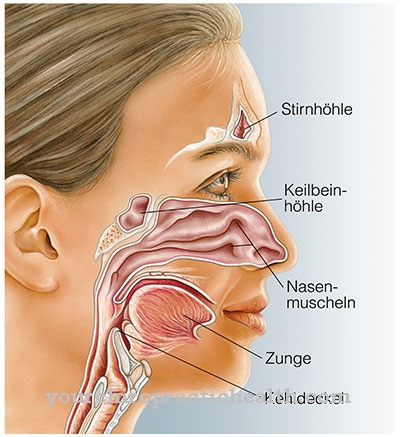



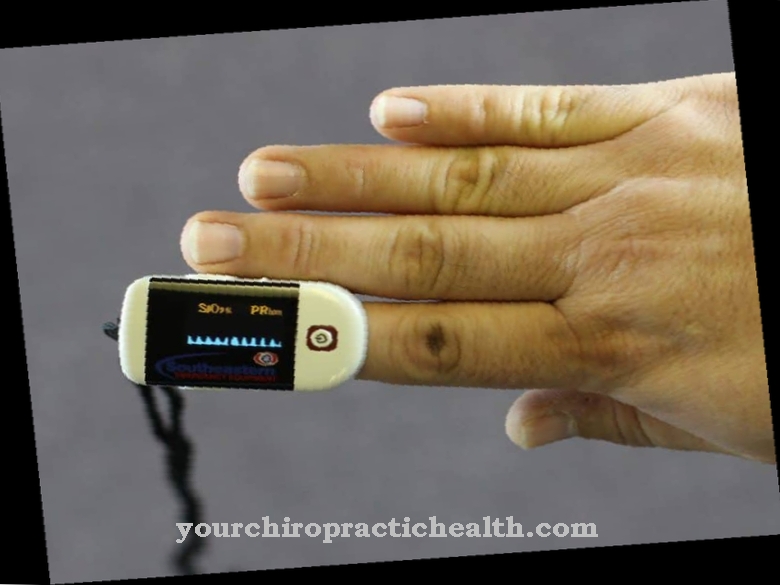



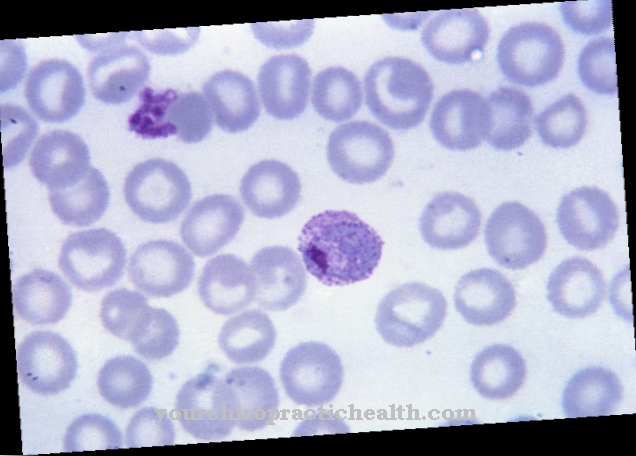




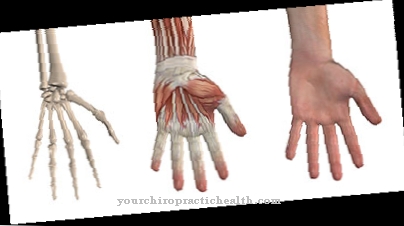






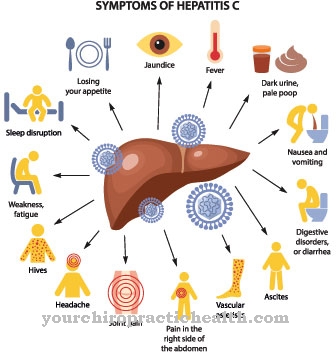
.jpg)


